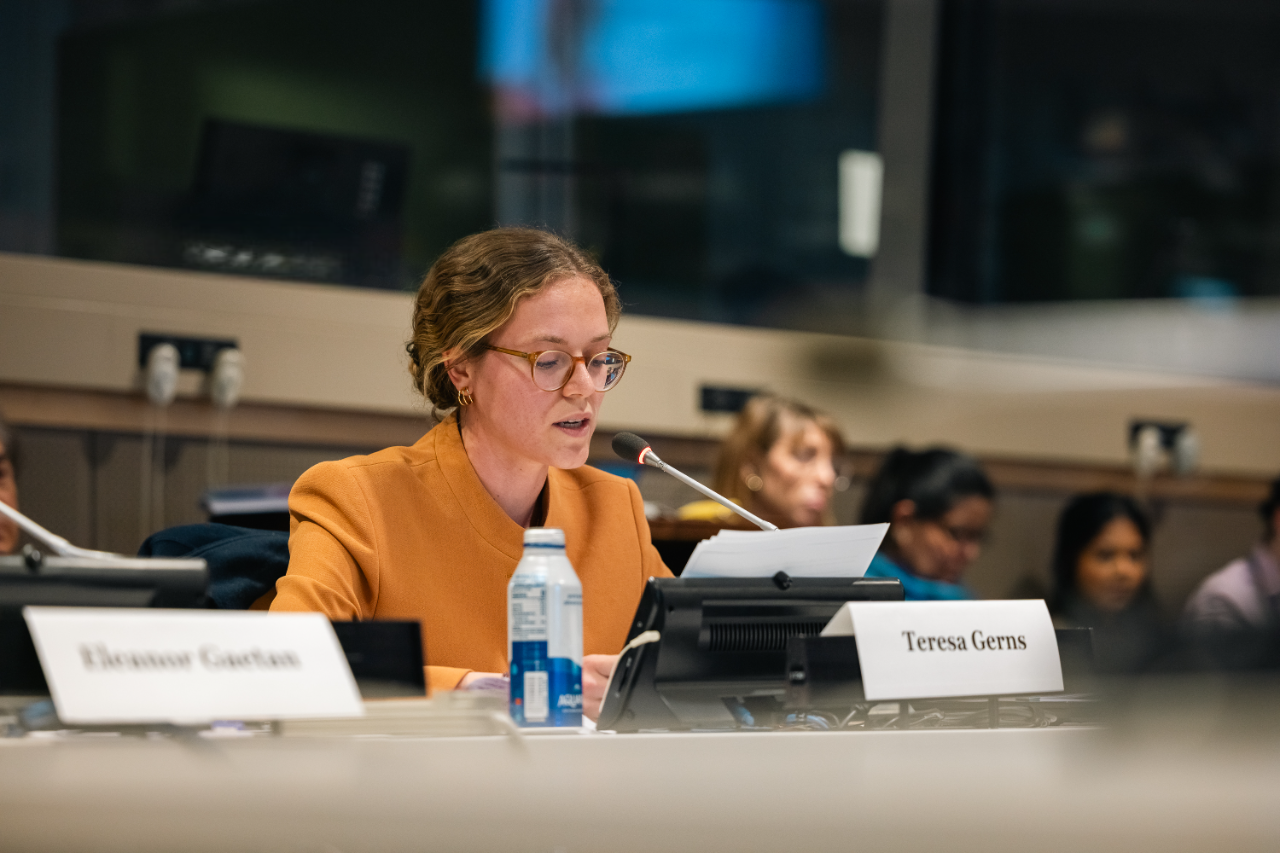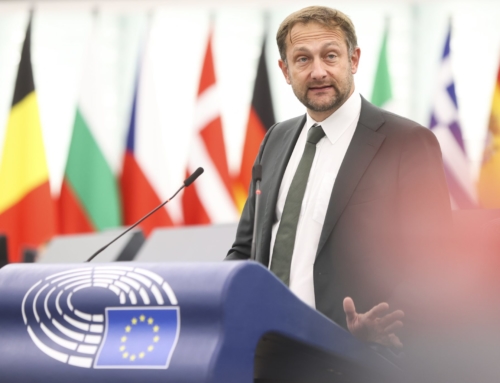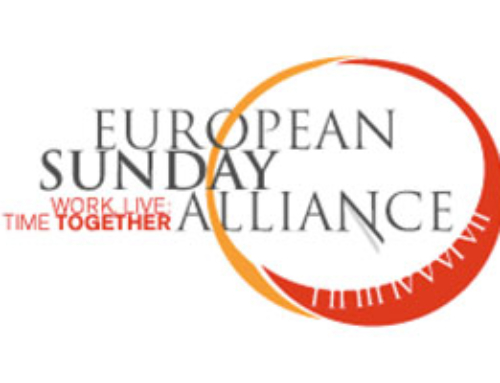Brussels, 1st April 2025
On the 19th of March, FAFCE participated at the side event on “the Scourge of Pornography in the Digital Age” at the United Nations during the 2025 Commission on the Status of Women (CSW) session in New York.
FAFCE, represented by UN Advocacy Director Teresa Gerns, spoke at the UN, highlighting the urgent need to protect children from the harmful effects of online pornography. This intervention was made possible thanks to the generous invitation of the Permanent Mission of the Holy See in New York and the United States Conference of Catholic Bishops (USCCB), and it underscores the Federation’s growing international presence in advocating for family rights and children’s well-being.
During the side event several experts discussed the harmful effects of pornography on individuals and society. Maria Parker, Assistant Director for Laity at the USCCB, highlighted the impact of pornography on the mental health and relationships of young people. Dr. Julia Dezelski, Associate Director of Marriage & Family Life at the USCCB, emphasized the importance of family and pastoral guidance in fostering healthy relationships. Dr. Eleanor Gaetan, Vice President of Public Policy at the National Center on Sexual Exploitation (NCOSE), discussed the link between pornography and human rights violations, sharing US cases of how it has devastated the lives of many women. The session was moderated by Ms. Marissa Eckelkamp, Policy Advisor for Marriage & Family at the USCCB, who guided the discussion throughout.
As per the International Covenant on Economic, Social and Cultural Rights (ICESCR), families are entrusted with the responsibility of care and education, and children’s best interests must always be prioritized. This principle will guide FAFCE’s advocacy for children’s mental health and development, particularly in alignment with Social Development Goal (SDG) 3, which focuses on good health and well-being.
The side event happened in the context of the anniversary of the Beijing Declaration, an international document that talks among others about the harms of pornography. Aligning with the Beijing Declaration’s call to promote and protect the “mental health for all women and girls” FAFCE emphasized the need for effective strategies to protect children from online pornography and to raise awareness of the harmful impact for the mental and moral development of children. This exposure is not a passive experience; it constitutes a form of sexual violence. Experts in psychology and medicine warn of the severe consequences for children’s mental health, as pornography impacts their perceptions of relationships, sexuality, and self-worth.
FAFCE explained that in response to this growing issue, both the European Union and the Council of Europe have recognized the need for stronger protections. The Council of Europe has called for better measures to combat children’s exposure to online pornography, warning that such exposure is detrimental to their psychological and physical development. In 2022, the European Union further highlighted the importance of a safe digital environment for children, acknowledging the ineffectiveness of current age verification and parental control systems in preventing harmful access to online pornography.
Despite these initiatives, existing protections remain inadequate. FAFCE emphasized that while online pornography is illegal for minors, age verification mechanisms and parental consent tools are often ineffective. Children continue to have easy access to harmful content, which can have far-reaching effects on their development and their mental health.
FAFCE is committed to turning awareness into action. Through the support to the European SHIELD Platform, which unites legal, medical, and addiction specialists, FAFCE is working to recognize online pornography as a public health issue and promote best practices across Europe. FAFCE advocates for the implementation of mandatory and effective age verification for online platforms, increased international cooperation, and a stronger role for families in safeguarding children.
FAFCE had already contributed significantly to UN initiatives: In response to the 2024 UN’s call for inputs on “Solutions to promote digital education for young people and protect them from online threats”, FAFCE provided important research and recommendations. These contributions, which are publicly available on the official UN website, highlight FAFCE’s active role in advocating for better protection of children in the digital world. The Federation’s involvement underscores its ongoing commitment to ensuring that children are not only educated in digital spaces but also safeguarded from harmful content.
FAFCE’s intervention at the UN was a call for greater responsibility from international institutions, governments, and civil society to“ deliver on long term solutions to tackle this problem as a public health issue and mitigate the risks of online threats for minors. These protections must be coupled by a deeper inclusion of family networks, who act as a support in the midst of loneliness and isolation. Families bear the original responsibility of the protection of their children and play the central role in their social and moral education”.
FAFCE reiterated “that institutions have a duty to ensure that children are not consumers of harmful material online. Children’s exposure to po***graphy is already a form of online sexual abuse that our societies are tolerating. With technologies like Artificial Intelligence moving faster than our ethical and social conversations, we are in danger of sleepwalking into a public health crisis. This is a battle that requires a fight on both fronts. Future generations depend on us winning it”.
This intervention in New York marks a historic moment for FAFCE, as it takes its place on the global stage to advocate for families and children. We are grateful to the Permanent Mission of the Holy See in New York and the whole team of the USCCB for their support in making this possible.
Read more on FAFCE work on child protection from pornography:
- 2024 FAFCE Comment on UN Treaty on Cybercrime
- 2024 European Child Shield Platform publishes advocacy document
- 2024 On #SaferInternetDay, we reiterate our calls for digital safety
- 2024 FAFCE welcomes extension of measures for a better protection of minors in the EU
- 2023 PRESS RELEASE I FAFCE welcomes steps towards a better protection of minors in the EU
- 2023 The European Parliament calls for better child protection in online video games environment







